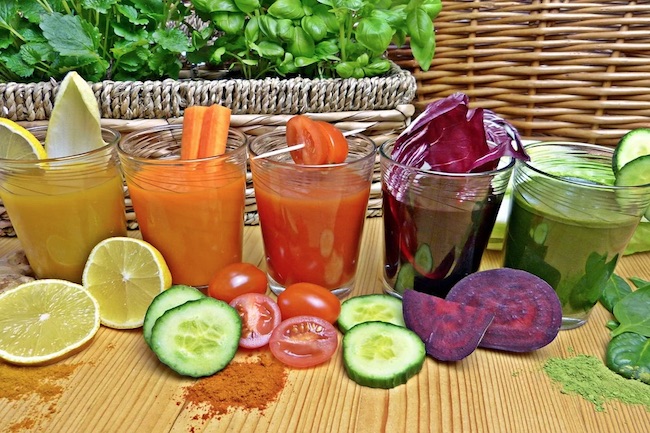Un-beet-able: Study shows beetroot can boost athletic performance By Zoey Sky for Nutrients
Beets are often used to make a sour soup called borscht or salads, but the root vegetable might soon be consumed by many athletes. According to a study conducted by researchers from the University of South Australia(UniSA), beets can naturally boost athletic performance.
Researchers conducted a meta-analysis of 118 studies from 25 countries and they assessed the performance effects of several foods considered to benefit aerobic performance. Results showed that beetroot, grapes, sour cherries and pine bark extract helped boost endurance exercise performance by improving nitric oxide availability in the body.
Beetroot’s high nitrate levels, which have been shown to improve blood circulation and increase oxygen and nutrient delivery to muscles during exercise, helped the athletes reach peak performance quicker. On the other hand, the polyphenols in cherries, grapes, and pine bark extract protected nitrate from degradation, which helped increase stamina.
Polyphenols are powerful antioxidants that can help reduce the impact of oxidative stress. These compounds also prevent or reverse cell damage caused by aging, environmental and lifestyle factors.
Noah D’Unienville, the study’s lead researcher, said the study findings prove that beets and certain foods are “natural endurance enhancers.”
A low-calorie vegetable, beets are full of essential vitamins and minerals.
Beets contain a bit of almost all of the vitamins and minerals your body needs to stay healthy. A 3.5-ounce (100-gram) serving of boiled beetroot contains 44 calories, 0.2 grams of fat, two grams of fiber, 1.7 grams of protein and 10 grams of carbs.
The same serving also contains:
- Folate – 20 percent of the Daily Value (DV)
- Manganese – 14 percent of the DV
- Copper – eight percent of the DV
- Potassium – seven percent of the DV
- Magnesium – six percent of the DV
- Iron – four percent of the DV
- Vitamin B6 – four percent of the DV
- Vitamin C – four percent of the DV
Beets are a great source of folate, a vitamin that has an important role in growth, development and heart health. Additionally, beets are rich in manganese, a nutrient with a role in bodily functions like bone formation, nutrient metabolism and brain function.
Beets are also full of copper, an essential mineral needed for energy production and the synthesis of certain neurotransmitters.
Beets contain compounds with protective effects
D’Unienville explained that while there is a lot of interest in nitrate-rich and polyphenol-rich foods due to their potential to boost exercise performance, it doesn’t mean that containing these elements will automatically translate into an improvement in exercise performance.
For example, the UniSA study showed that beetroot can boost performance but other foods full of nitrates, like red spinach, rhubarb and Swiss chard did not offer similar benefits. At the same time, while grapes, sour cherries and pine bark extract helped boost the athletes’ performance, other foods full of polyphenols like blackcurrant, cocoa, ginseng and green tea did not.
There isn’t a lot of data on spinach, Swiss chard and rhubarb compared to beetroot, but D’Unienville said it’s possible those three vegetables did not show performance benefits even though they were full of nitrates because they are also lower in polyphenols than beetroot. (Related: Beetroot is packed with disease-fighting antioxidants, phytonutrients and essential nutrients.)
The protective effect of these antioxidants on the nitric oxide converted from the nitrate in the beetroot may make the difference, said D’Unienville. He added that in some studies where nitrates were removed from the beetroot, the vegetable still had a minor effect on exercise performance.
Jon Buckley, a study co-researcher, said that despite the benefits of foods like beetroot, grapes and sour cherries to exercise performance, their effects did discriminate. More significant effects were observed in the athletes who were less fit. Men were also more likely to benefit from beetroot, grapes and sour cherries than women.
If you want to boost your athletic performance, Buckley recommends training regularly and consuming beetroot juice.
Visit Veggie.news to learn more about the health benefits of beets and other amazing superfoods.
Watch the video below for 10 good reasons to eat more beets.




